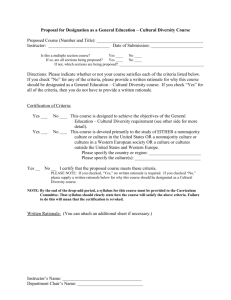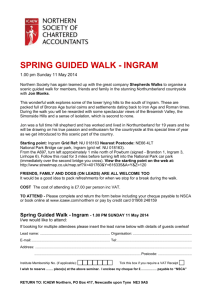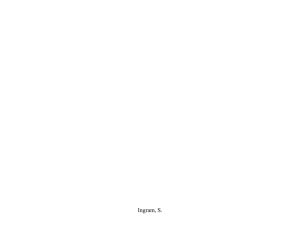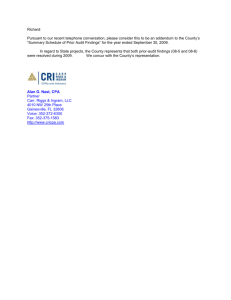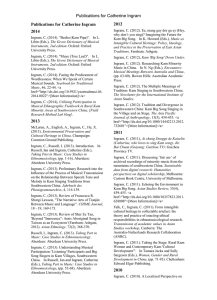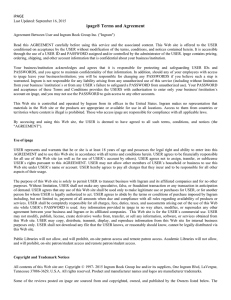World History 10th Grade Syllabus - Roosevelt High School
advertisement
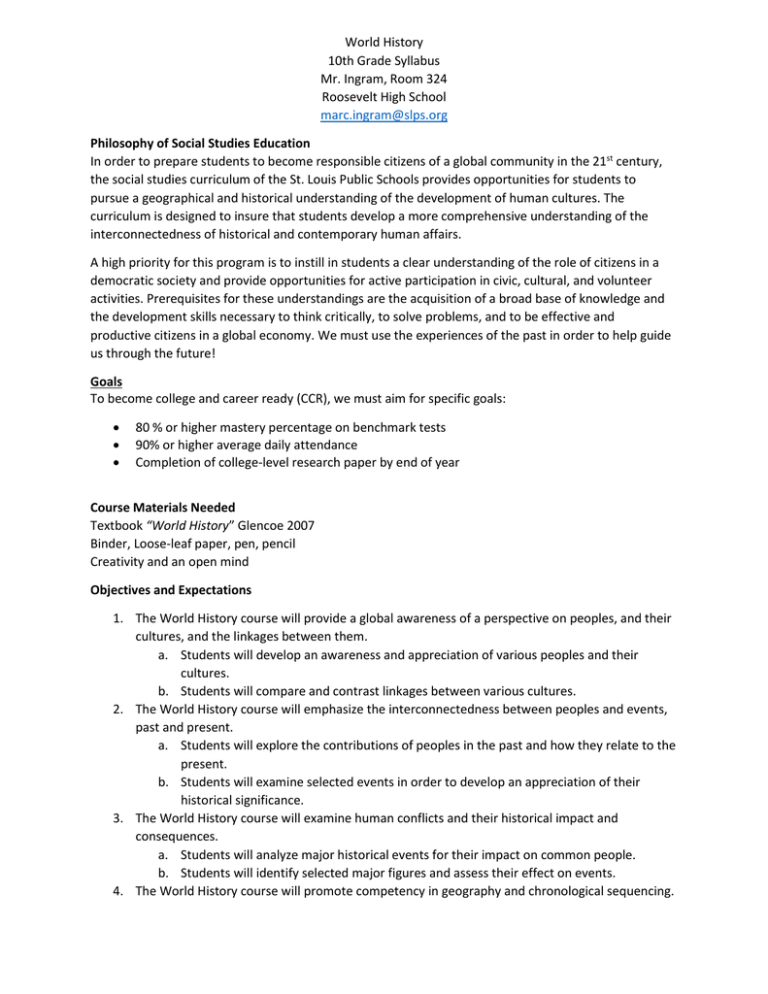
World History 10th Grade Syllabus Mr. Ingram, Room 324 Roosevelt High School marc.ingram@slps.org Philosophy of Social Studies Education In order to prepare students to become responsible citizens of a global community in the 21st century, the social studies curriculum of the St. Louis Public Schools provides opportunities for students to pursue a geographical and historical understanding of the development of human cultures. The curriculum is designed to insure that students develop a more comprehensive understanding of the interconnectedness of historical and contemporary human affairs. A high priority for this program is to instill in students a clear understanding of the role of citizens in a democratic society and provide opportunities for active participation in civic, cultural, and volunteer activities. Prerequisites for these understandings are the acquisition of a broad base of knowledge and the development skills necessary to think critically, to solve problems, and to be effective and productive citizens in a global economy. We must use the experiences of the past in order to help guide us through the future! Goals To become college and career ready (CCR), we must aim for specific goals: 80 % or higher mastery percentage on benchmark tests 90% or higher average daily attendance Completion of college-level research paper by end of year Course Materials Needed Textbook “World History” Glencoe 2007 Binder, Loose-leaf paper, pen, pencil Creativity and an open mind Objectives and Expectations 1. The World History course will provide a global awareness of a perspective on peoples, and their cultures, and the linkages between them. a. Students will develop an awareness and appreciation of various peoples and their cultures. b. Students will compare and contrast linkages between various cultures. 2. The World History course will emphasize the interconnectedness between peoples and events, past and present. a. Students will explore the contributions of peoples in the past and how they relate to the present. b. Students will examine selected events in order to develop an appreciation of their historical significance. 3. The World History course will examine human conflicts and their historical impact and consequences. a. Students will analyze major historical events for their impact on common people. b. Students will identify selected major figures and assess their effect on events. 4. The World History course will promote competency in geography and chronological sequencing. a. Students will demonstrate mastery of basic geographic knowledge and skills. b. Students will acquire the ability to arrange historical events in proper chronological order. 5. The World History course will enhance knowledge of and respect for the origin and diversity of human values. a. Students will trace origin of human values in selected societies. b. Students will identify the common and diverse features of selected cultural value systems. Basic Course Outline In breaking down this course, I have decided to focus on core units of information and time frames to work from. Here is how the year will be broken down, along with major tests. Unit 1: The Study of History and the Skills of Historians (8/17 – 8/25) Unit 2: Origins of Humanity and Development of Civilizations (8/26 – 9/18) Unit 3: Development of Empires (9/21- 11/6) Benchmark Test #1: Week of October 4-8 Unit 4: Age of Exchange and Encounter and the Emergence of the Global Age (11/9 – 1/15) Benchmark Test #2: Week of December 6-10 Final Exams: Week of December 13-17 Unit 5: The Age of Revolutions ( 1/18 – 2/5) Unit 6: Industrialism and Imperialism (2/8 – 3/5) Benchmark Test #3: Week of February 23 Unit 7: The World Wars (3/8 – 4/23) Unit 8: The World Since 1945 (4/26 – 5/26) Special Projects and Homework 1. The first thing I will have for you to do every day is to answer a series of questions that will guide our study for the day. We take almost every class and participate in in-class assignments. 2. The second area you need to do is the homework. Homework assigned will vary in difficulty, scope, and length, as well as point weight. You should do the work at home, or use time that I give you in class to finish work. Homework is assigned at least once a week. 3. Throughout the year, we will do projects, and an occasional report. Time will be allotted for you to complete special projects and reports. Once again, time management is essential and necessary. Here are a couple of projects we will undertake this school year: Create your own civilization World religions comparison chart Middle Passage collage Propaganda poster 4. When you are given an assignment, turn it in on time completed. Make up work will be accepted with an excused absence and suspension. In essence, there is no make-up work given unless you fall into one of these two categories. Make up work must be returned within 1 week of being given the work. NO EXCEPTIONS! Extra Credit Policy Extra Credit will be given at my discretion. So don’t beg for it. I don’t give extra credit to those who have failed to communicate with me, nor report absences to the school. My policy is stated clearly. Late/Tardy Policy Being late will result in a couple of things 1. You will lose points off your do now grade. 2. You will be referred for detention after excessive tardiness. 3. Your parent will receive a call home after excessive tardiness. Being tardy means not being inside the classroom before the late bell rings. Non-Negotiable Classroom Policies 1. Respect each other and instructor 2. Be on time and Prepared 3. Do the work in class and at home 4. No foul language 5. Leave food and drink in the cafeteria Non-negotiable policies also include: Being prepared to do class during the time allotted. Meaning, you have to be responsible for bodily functions before class starts. You also need to have all of your tools for class ready to use. Also, be in proper uniform with ID showing at all times. Electronic devices (phones/mp3 players) will be confiscated as well. Grading Scale A 100-90% “Superior work. The very finest!” B 89-80% “Good Job” C 79-70% “Average” D 69-60% “Below Average” F 59%-Below “Failure” CLASSWORK worth 50% TEST/PROJECTS worth 30% DO NOW/HOMEWORK worth 20% Contract and Acknowledgement of Syllabus We have read through this syllabus together and know what is required. If there are any questions about what is required, I know that Mr. Ingram can be reached by visiting him in room 324, or by calling the school. Should there be any problems, it is known that Mr. Ingram will call home and request the assistance of the parent or legal guardian who has signed this agreement. Without the help and support of the parent, I cannot succeed as a teacher, and your child cannot succeed as a student. Student Signature ________________________________________________ Parent Signature _________________________________________________ Parent Address ___________________________________________________ ___________________________________________________ Parent Telephone # _______________________________________________ Work # ______________________________________



